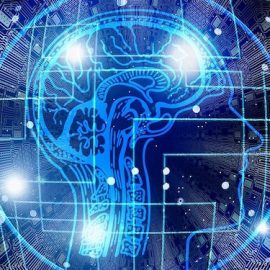

This article is an excerpt from the Shortform book guide to "Free Will" by Sam Harris. Shortform has the world's best summaries and analyses of books you should be reading.
Like this article? Sign up for a free trial here.
If free will is an illusion, are we responsible for our behaviors? Can we just blame external factors for our misdeeds?
Many argue that, if we throw free will out the window, moral responsibility goes with it. Sam Harris rejects free will as a reality and asks us to consider moral responsibility in that context. And, he contends that embracing the illusory nature of free will actually helps us think and act in more ethical ways.
Read on to understand Harris’s intriguing view of free will and moral responsibility.
Free Will and Moral Responsibility
Sam Harris characterizes free will as a state in which we’re conscious of, and have control over, the processes that give rise to our thoughts and decisions. He contends that, if we don’t have the ability to observe and influence the processes behind our thoughts, then we can’t really have ultimate responsibility over what we think and do.
Many questions about free will and moral responsibility sound abstract until we start to think about their real-life implications. Harris argues that we’re better off knowing we don’t have free will than wrongly assuming we do. We’ll explore the practical benefits of accepting that free will is an illusion, examining Harris’s arguments that knowing we lack free will can help us treat ourselves and others more compassionately and ethically.
It Can Make Us Humbler and More Compassionate
The first benefit of recognizing free will as an illusion is that we gain a new freedom: freedom from a misplaced sense of credit or blame for our actions, according to Harris. He contends that, once we know that external factors shape what we do, then we’ll feel more humble about our accomplishments and more compassionate about our failures. He also thinks that we’d benefit from realizing that much of our character comes down to luck: Different circumstances would have made us into a different sort of person.
(Shortform note: The idea that you’ve become who you are by chance might be uncomfortable, but many scientists think that luck plays a key role alongside genetics and environment in shaping you. Biologists theorize that in addition to nature and nurture, randomness—such as chance events during brain development—exerts a major influence on your personality and the interests you develop throughout your life. Some scientists even argue that chance may play a more important role than your environment in shaping who you are.)
Harris contends that, even without free will, our efforts still matter. He differentiates between determinism, or the idea that our thoughts and actions have a cause, and fatalism—the idea that whatever will happen will happen, whether we take action or just watch things play out. Harris writes that sitting back and doing nothing isn’t the answer: He says that, even though our decisions are caused, these decisions still matter, as does the effort we put into engaging in conscious thought and deliberation. This is because, even though free will is an illusion, our choices and efforts still determine what kind of people we are and what kind of lives we live.
(Shortform note: Philosopher Eddy Nahmias agrees with Harris’s point that determinism doesn’t have to equal fatalism. Nahmias explains that people sometimes mistakenly take determinism to mean that our decisions are caused in ways that totally bypass our conscious deliberations and decision-making—a theory that (if proven true) might justify a sense of fatalism. But, Nahmias notes that, even if scientists find that determinism does accurately explain how the universe and our decisions work, that wouldn’t prove that our decisions bypass our conscious thinking and deliberation. He writes that the efforts we make to think and deliberate are meaningful and contribute to our decisions, whether it turns out that the world is determinist or indeterminist.)
| Should We Act Like Free Will Is an Illusion? Let’s say that you agree with Harris that free will is an illusion. You accept that you don’t technically deserve full blame for your mistakes or full credit for your accomplishments. What happens next? Should you begin to act according to your knowledge that free will isn’t real, as Harris suggests? While many experts believe on an intellectual level that we don’t have free will, not all of them agree with Harris that, on a practical level, we should behave as if our choices and actions aren’t free. Oliver Sacks—a neurologist who spent decades researching the human brain—came to believe that while consciousness is real, free will is an illusion and just a feature of our consciousness. Yet Sacks also contended that we have to take responsibility for our decisions rather than blaming our mistakes on the neurophysiology of our brains. Albert Einstein also rejected the idea that we have free will but believed it necessary for us to behave as though we have it. He explained that if we want to live in a world where people behave morally, we have to act as if we’re responsible for our decisions. Yet, citing his belief that everything is determined, Einstein didn’t take credit for his own achievements. He explained that his understanding that free will isn’t real prevented him from taking himself too seriously. |
It Can Help Us Treat Other People More Ethically
A second benefit of accepting the illusory nature of free will is that we can change how we see other people’s moral choices. Harris argues that, because prior causes—including those that happen by chance—influence each person’s choices, moral character, and ability to comply with moral norms, we can’t give them full credit or blame for what they do. He believes that we can treat others more ethically by realizing that people aren’t fully responsible for the crimes they commit. For example, he thinks it comes down to bad luck for someone to be a psychopath and argues that we should develop ways to rehabilitate, not blame, such people.
(Shortform note: Harris isn’t the first to question whether psychopaths are responsible for their actions. Another philosopher to consider the question is Walter Glannon, who writes that, to have moral responsibility, you must be able to channel your desires, feelings, and intentions into moral decisions appropriate to the situation, a kind of control that many psychopaths don’t have. But he contends that if we understand moral responsibility in degrees, then some psychopaths have sufficient cognitive and emotional abilities to be held at least partially responsible for their actions. Like Harris, Glannon also thinks we should explore rehabilitating psychopaths—but we have to weigh people’s individual rights against the public interest in avoiding harm.)
In much the same way that Harris contends our choices still matter even though we can’t choose our choices, he argues that there are practical benefits to holding people responsible for their behavior even if they aren’t responsible in an absolute way. Our current criminal justice system assumes that we’re responsible for our actions and that criminals choose freely to break laws. So when we drop the idea of free will and realize that anyone committing a crime hasn’t caused their intentions or their actions, then we also have to change our idea of justice. Harris outlines three focuses that he thinks our criminal justice system should adopt to give fair treatment to people who commit crimes. These can be applied to anyone who exhibits harmful behavior.
- Assess their degree of guilt. Understand that some people clearly make a deliberate decision to harm someone else, making them more guilty than someone whose intention or moral competence is less clear.
- Consider that luck plays a significant role in their ability to behave morally. Our genes, our upbringing, our environment, and the ideas that occur to us all determine our character.
- Determine how much of a risk they pose to others. Focus on rehabilitation and deterrence more than punishment.

———End of Preview———
Like what you just read? Read the rest of the world's best book summary and analysis of Sam Harris's "Free Will" at Shortform.
Here's what you'll find in our full Free Will summary:
- That free will is an illusion that you should abandon altogether
- How our thoughts, feelings, and desires are caused by outside influences
- Why putting effort into decisions matters, even if they're predetermined






